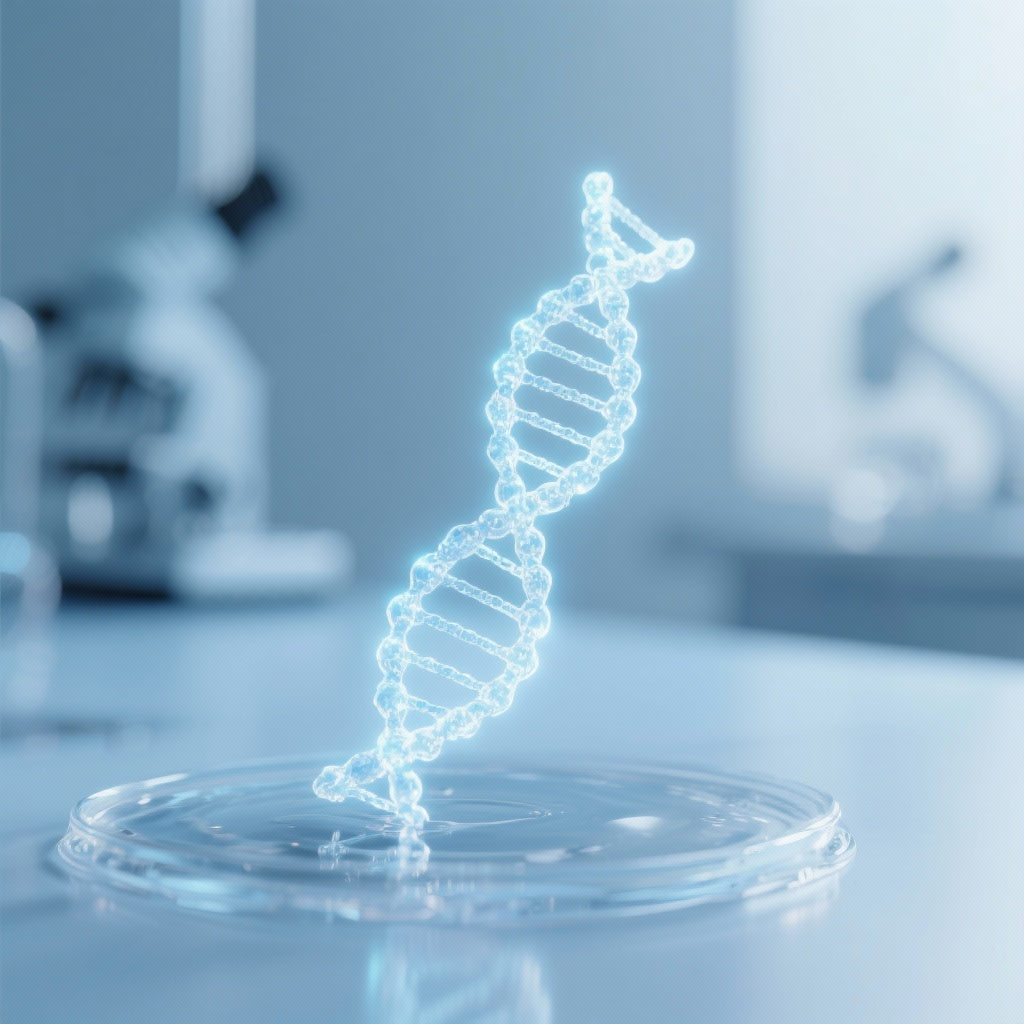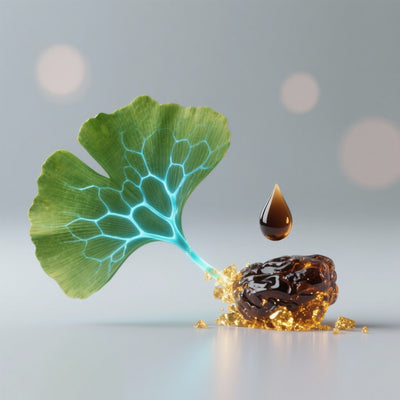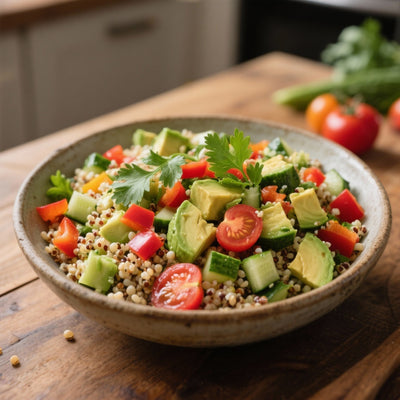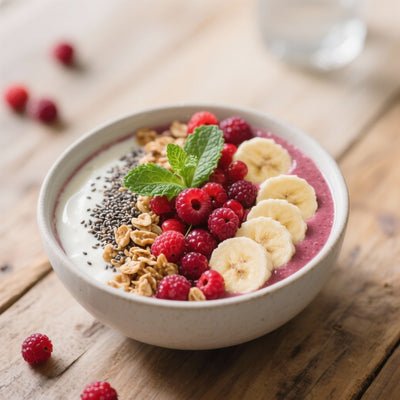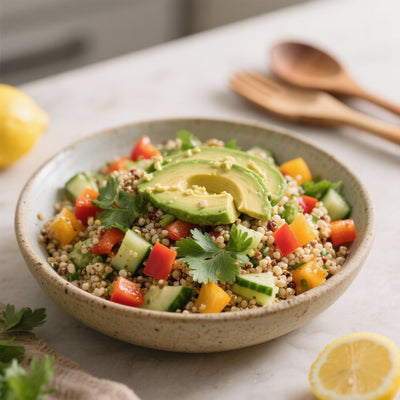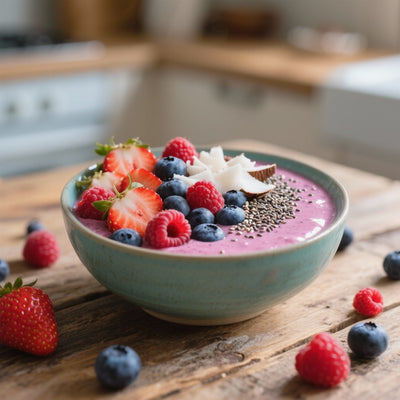How to Boost Natural Collagen Production with Targeted Supplements
The desire for smooth skin, flexible joints, and shiny hair is universal. At the heart of this quest for vitality lies an essential protein: collagen. The true "cement" of our bodies, its natural production inevitably begins to slow down from the age of 25. This decline is the underlying cause of the appearance of fine lines, loss of firmness, and joint pain that many of us dread.
But what if there was a targeted strategy to not only slow down this process, but also to actively restart your body's internal machinery? Far from being inevitable, collagen loss can be combated. This comprehensive guide will reveal how intelligently chosen supplements can work synergistically to boost your natural collagen production, thus restoring the structure and resilience of your skin, bones, and connective tissues.
Understanding Collagen: The Structural Pillar of Your Body
Before diving into the world of supplements, it's crucial to understand what collagen is and why it's so fundamental. Collagen is the most abundant protein in the human body, making up about 30% of all our proteins. Think of it as an invisible framework that provides shape, strength, and integrity to almost all of our tissues.
The Multifaceted Role of Collagen
From skin to bones, including tendons and ligaments, collagen is everywhere. It is responsible for:
- Skin elasticity and firmness: It forms a dense matrix in the dermis, preventing sagging and the formation of wrinkles.
- Joint health: It constitutes cartilage, this smooth and resistant tissue that cushions shocks between bones.
- Bone strength: It creates the structure onto which minerals like calcium and phosphate bind.
- The strength of hair and nails: It is a key component of their structure, promoting healthy growth.
Natural Decline: Why is Production Slowing Down?
Over time, several factors conspire to reduce our collagen levels. Chronological aging is the main culprit: our fibroblasts, the cells responsible for collagen production, become less active. Added to this are external factors that accelerate its degradation:
- Exposure to the sun's UV rays
- Smoking and pollution
- A diet high in sugar and processed foods
- High chronic stress
The signs of this loss are well known: thinner skin, more pronounced wrinkles, brittle hair, and slower recovery after exercise. Fortunately, targeted supplementation offers a promising way to reverse this trend.
Hydrolyzed Collagen Peptides: The Cornerstone of Supplementation
The starting point for any pro-collagen strategy is the collagen supplement itself, more specifically in the form of hydrolyzed collagen peptides . Unlike native collagen found in food, which is a molecule too large to be absorbed efficiently, hydrolyzed collagen has been broken down into small chains of amino acids (peptides) that are easily assimilated by the body.
How do peptides work?
Once ingested, these peptides travel via the bloodstream and act in two main ways:
- Providing the building blocks: They directly deliver the specific amino acids (glycine, proline, hydroxyproline) needed to manufacture new collagen.
- Stimulating production: Most importantly, they act as signals, "tricking" fibroblasts into thinking there is a breakdown of existing collagen. In response, these cells actively restart the production of fresh collagen.
"Supplementation with hydrolyzed collagen peptides is not just about providing materials. It's a real biological signal that wakes up our own collagen production factories."
Choosing the Right Type of Collagen
There are over 28 types of collagen, but types I, II, and III are the most relevant for supplementation. Type I , the most abundant, is crucial for skin, bones, and tendons. Type III is often found alongside Type I and is important for the structure of organs and arteries. Type II is the main component of cartilage. For overall benefit (skin, hair, nails), a blend of Types I and III is ideal.
Essential Co-factors: Collagen's Indispensable Allies
Taking collagen peptides is an excellent first step, but for your body to use them effectively, it needs help. This is where cofactors come in: vitamins and minerals that play an essential role in the collagen synthesis process.
Vitamin C: The Essential Catalyst
Vitamin C is not optional; it is an absolute necessity for collagen production. It is essential for two enzymes (prolyl hydroxylase and lysyl hydroxylase) that stabilize the triple helix structure of collagen. Without sufficient vitamin C, the collagen produced is unstable and degrades rapidly. This is why scurvy, a vitamin C deficiency disease, manifests with symptoms of connective tissue degradation.
Practical tip: Always combine your collagen supplement with a source of vitamin C, either through a combination supplement or by taking it with a glass of fresh orange juice or lemon water.
Hyaluronic Acid: The Hydration Magnet
While collagen provides the skin's framework, hyaluronic acid (HA) acts as its moisture cushion. This molecule has the phenomenal ability to retain up to 1,000 times its weight in water. By binding to water, HA fills the space between collagen fibers, providing volume, hydration, and elasticity to the skin. It also contributes to joint lubrication. A supplement combining collagen and HA therefore offers a synergistic approach for plump skin and fluid joints.
This is the average increase in skin hydration observed after 12 weeks of supplementation combining collagen peptides and hyaluronic acid, according to a study published in the Journal of Clinical and Aesthetic Dermatology .
Zinc and Copper: The Architectural Minerals
These two trace elements are often overlooked, but they are crucial for collagen strength. Copper is necessary for the enzyme lysyl oxidase, which creates the cross-links between collagen fibers, giving them strength and resilience. Zinc, meanwhile, acts as a cofactor for collagenase, an enzyme that helps break down old, damaged collagen to make way for new growth. A balance between these two minerals is therefore vital for healthy collagen renewal.
Beyond Supplements: Optimizing Your Internal Environment
Supplementation is powerful, but it reaches its full potential when combined with a lifestyle that protects and supports your collagen levels. Every daily choice can either build or destroy this precious protein.
A Pro-Collagen Diet
Your plate is your first line of defense. Incorporate foods that not only provide the building blocks but also fight inflammation and oxidative stress, two major destroyers of collagen. For concrete ideas, explore our recipes specially designed for skin health .
- Quality proteins: Meat, fish, eggs, legumes.
- Foods rich in Vitamin C: Citrus fruits, berries, peppers, kiwis.
- Sources of Zinc and Copper: Nuts, seeds, seafood, dark chocolate.
- Antioxidants: Green leafy vegetables, green tea, colorful fruits.
5 Lifestyle Habits to Protect Your Collagen
- Non-negotiable Sun Protection: Apply a broad-spectrum sunscreen every single day, without exception. UV rays are the number one enemy of collagen.
- Prioritize sleep: It's during the night that the body repairs itself and produces the most collagen. Aim for 7 to 9 hours of restorative sleep.
- Manage Your Stress: Cortisol, the stress hormone, directly breaks down collagen fibers. Practice meditation, yoga, or any other relaxing activity.
- Limit Sugar: Sugar causes a phenomenon called glycation, where sugar molecules bind to collagen fibers, making them stiff and brittle.
- Stay Hydrated: Water is essential for maintaining skin elasticity and volume. Drink enough throughout the day.
For more tips on how to incorporate these habits, check out our lifestyle section .
Frequently Asked Questions (FAQ)
Are collagen supplements really effective?
Yes, numerous clinical studies have demonstrated the effectiveness of hydrolyzed collagen peptides. They have proven their ability to improve skin hydration and elasticity, reduce the depth of wrinkles, and relieve joint pain. Effectiveness depends on the quality of the product, the dosage, and the regularity of intake.
How long does it take to see results?
Patience is key. Collagen renewal is a slow process. The first benefits in skin hydration can be felt after 4 to 8 weeks. For more structural changes, such as wrinkle reduction or improved joint comfort, at least 12 weeks of continuous use are generally required.
Is there a vegan alternative to collagen?
Collagen is a protein of exclusively animal origin. Therefore, there is no such thing as "vegan collagen" per se. However, there are vegan "collagen boosters." These supplements do not contain collagen, but rather a complex of nutrients (such as vitamin C, zinc, silica, and plant-based amino acids) designed to provide the body with everything it needs to optimize its own collagen production.
